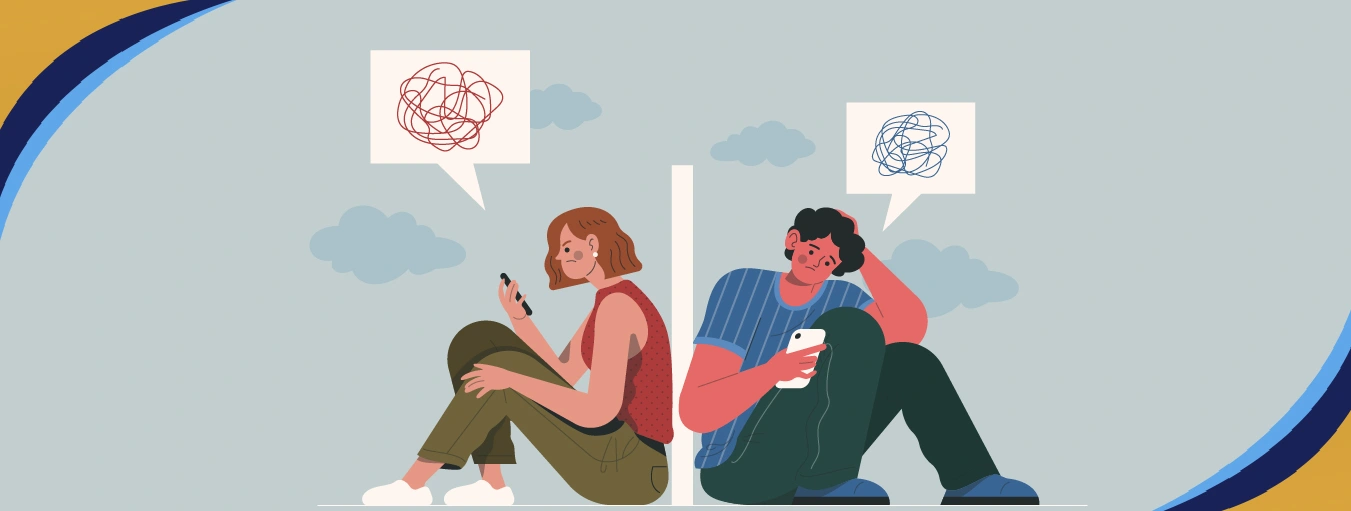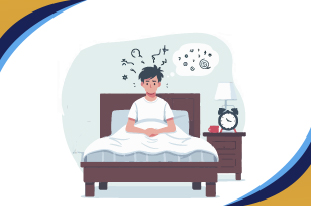When people experience trauma, they often react in one of three ways: fight, flight, or freeze. But there’s another reaction that’s less talked about, called the fawn response. Fawning means trying to please others to avoid getting hurt. People who have experienced trauma, like abuse, may use this response to feel safe. They may feel helpless and try to avoid conflict by doing whatever others want.
In today’s blog, we will explain what is fawn response, what is fawning trauma, what does fawn mean in trauma, why it occurs, what impact it has on the people, and methods of recovery from it.
What Is Fawn Trauma Response?
Fawning is a way people deal with stress or danger. Instead of fighting, running away, or freezing, they try to please the person causing the stress. They might think, “If I do what they want, they won’t hurt me.”
People who experience the fawn response might:
- Avoid contact at all costs with people who could provoke an argument.
- Fail to think of one’s self, prioritize anyone’s needs or respect their personal space.
- They try to be as close to perfect as possible or excessively helpful in order to be praised or to avoid condemnation.
- Behaviorally results in feeling responsible for the feelings and state of others.
Fawning can start early in life, especially if a child grows up with a parent who is unpredictable or critical. The child might learn that pleasing others is the best way to avoid being hurt. Over time, this becomes a habit, and they may continue to fawn even when it’s no longer helpful.

Why Do People Fawn?
The fawn response usually unfolds as a result of chronic stress resulting either from emotional or physical stressors. It is usually found in people who have grown up in violent homes that did not give them enough attention. Here’s why people often end up fawning:
- To Stay Safe: In a threatening situation, for example, a person may think that the only way of protecting himself is by making others happy. In this way, they agree, help, or remain silent because the necessary anger or conflict is not comfortable at all.
- To Gain Approval: People who fawn often have low self-esteem and feel insecure. They believe that being helpful and pleasing others will make them feel more accepted and valued.
- To Manage Anxiety: People who fawn often try to control situations to reduce stress. They might think that by pleasing others, they can prevent bad things from happening.
Read More: Understanding Relational Trauma
Signs Of A Fawn Response
What makes it hard to identify a trauma and fear response fawn is the fact that trying to please others is considered admirable among human beings. But though, fawning is not an extension of courtesy or being nice. Here are some common signs:
- Difficulty Saying No: If you always agree with others and feel anxious when disagreeing or refusing a request, you may likely be a fawner.
- Ignoring Your Own Needs: Those who fawn may give much importance to the needs of other people and sacrifice their own needs. This might look like working extra hours in order to assist a friend, although one is very tired.
- Excessive Apologizing: People who fawn often apologize for things they didn’t do just to avoid arguments or disagreements.
- Fear of Conflict: Not being able to argue even when it is necessary to do so, especially if you should at some point be defending yourself, is likely a sign of fawning.
- Feeling Overwhelmed by Others’ Emotions: Empaths often feel responsible for making others feel good. However, this can lead to burnout, as they may neglect their own needs and well-being.
The Impacts of Fawning
Being fearful is a behavior that can help people avoid danger in certain situations. However, if it becomes a habit, it can negatively impact a person’s life in many ways.
- Loss of Identity: Such a pattern of behavior always puts you in a position where you forget about yourself. Regardless of motive, fawning may be compensating for low self-esteem and a general inability to identify one’s needs and preferences.
- Unhealthy Relationships: People who fawn can attract people who take advantage of their kindness. Flatterers may use them to get what they want without caring about the needs of the person who is fawning.
- Burnout and Fatigue: Caregivers often have to deal with the emotional needs of others. This can be stressful and can lead to mental and physical health problems, such as anxiety, depression, MDD, acute stress, specific phobia,or chronic illnesses.
- Difficulty Setting Boundaries: Fawning might be an issue where the person is unable to come out and say no or to set boundaries when it comes to their time and energy, which is not good for any relationship.
- Suppressed Emotions: Those who tend to suppress feelings because of the knowledge that those feelings may inconvenience other people. This leads to the accumulation of raw feelings that can eventually cause an impact on mental health.
Read More: Trauma Brain Vs Normal Brain: How Trauma Affects The Way We Live
How To Heal From Fawning Trauma Response?
If you find that you are living out your life in a constant state of overload and unable to avoid the triggers that force you into this state of fawning, read on to find out how to begin to recover from this traumatic response. Recovery from the fawn response means respecting oneself and learning to look after oneself. Here are some steps that can help:
-
Recognize The Patterns:
The first step to recovery is realizing that fawn response to trauma is a behavior that can develop as a result of past abuse. It’s important to calm down and think about situations where you might have put others’ needs before your own to avoid conflict. Remember, while fawning may have helped you in the past, it might not be helpful now.
-
Begin To Make Some Small Rules:
Setting your boundaries initially is awkward, especially if you are a people-pleaser. For instance, one can commence by saying “no” to something little or even stating a preference. For instance, should a friend invite you somewhere you have no wish to be, say: “I appreciate the invite but I think I will pass tonight.”
-
Practice Self-Awareness:
Listen to your body, mind, and heart often. Ask yourself questions like:
- How do I feel right now?
- More often than not, am I going along with this process because I would love to, but due to the circumstances, I am bound to?
- What do I require at this moment?
These questions assist you in the procedure of being aware of your emotions and doing what feels right and not what others want to see.
-
Build Assertiveness Skills:
It’s important to remember that being assertive doesn’t mean being mean or selfish. Assertiveness is about expressing your needs and wants clearly and respectfully. To start being more assertive, you can practice in small ways. For example, you could speak up during a work meeting or choose what to eat at a restaurant.
-
Work On Self-Compassion:
Anyone who fawns usually has issues with their self-esteem. Begin practicing self-compassion and tell yourself in various forms that you are important as a person regardless of what you do to others. Permit yourself to be a person with a heart, and remember that you do have the right to be heard and have needs.
-
Seek Support:
A therapist can help you understand why you fawn and how to develop healthier coping mechanisms. They can help you work through past traumas and learn new ways to deal with stress. Joining a support group or talking to friends who have similar experiences can also be helpful. Getting support from others can help you build healthier habits.
Read More: What Is The Story Behind People Pleasing Trauma Response
Prioritizing Yourself Without Hurting Others
It’s good to be kind, but it’s important to balance kindness with self-care. Don’t let yourself get so caught up in helping others that you neglect your own needs.
Being assertive doesn’t mean being mean or selfish. It means being able to express your own needs and wants while still being respectful of others. It’s okay to have different opinions and to disagree sometimes. Healthy conflict can actually strengthen relationships. Remember to take care of yourself. It’s important to prioritize your well-being.
Conclusion: Embracing Your True Self!
It takes time and effort to stop fawning and start building your own identity. When you recognize and change your people-pleasing habits, you can improve your self-esteem and build healthier relationships. Remember, it takes time to see results. Every small step you take to prioritize your own needs brings you closer to a life where you feel safe, valued, and authentic. If you’ve taken care of someone who fawns and experienced the challenges of that relationship, know that it’s okay to ask for help. By understanding the fawn response, you can help yourself and others heal.
Remember, it’s important to take care of yourself too. Prioritize your own needs and build a balanced life with the support of Orange Coast Psychiatry mental health services.
























